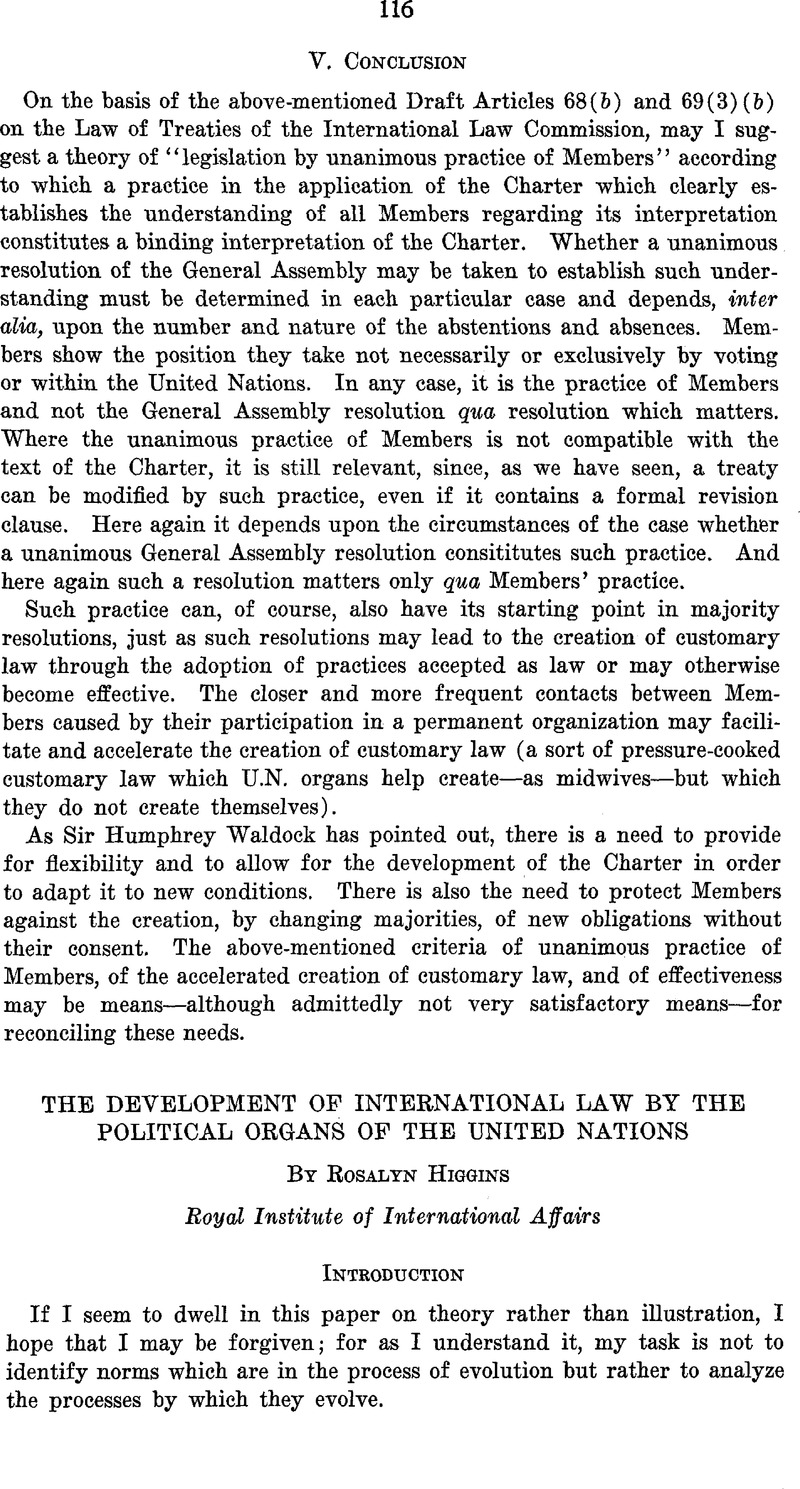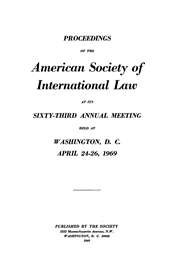Article contents
The Development of International Law by the Political Organs of the United Nations
Published online by Cambridge University Press: 27 February 2017
Abstract

- Type
- Third Session
- Information
- Proceedings of the American Society of International Law at its annual meeting (1921-1969) , Volume 59 , 1965 , pp. 116 - 124
- Copyright
- Copyright © American Society of International Law 1965
References
1 Cf. Tammes, 94 Hague Academy Eecueil des Cours 265 (1958), who asserts that a state may always hold its individual view against the interpretation of the organ, provided that it has not recognized in advance the organ's power of effective interpretation. He also offers as grounds for this view the argument that an organ as well as an individual state can become a judex in re sua, especially when it is seeking to expand its activities. Such a view seems to this writer to run counter to the “effectiveness” principle in the interpretation of international constitutions. We may also mention here Fitzmaurice 's view that the prime competence of an organ to interpret the Charter is in fact a protection of sovereignty, as it protects states from the attempts of other states to determine such matters unilaterally. 92 ibid, at 5 (1957).
2 We may note that the Court's Opinion here was referring to acts which are ultra vires rather than a detournement de pouvoir. The latter is action taken within the formal limits but for an improper purpose, involving an incorrect exercise of discretion. The ability of such action to bind the organization, even vis-a-vis third parties, is thus still an open question. for some comments on dStournement de pouvoir and international organization, see Fawcett, 33 Brit. Yr. Bk. Int. Law 311 (1957).
- 1
- Cited by


